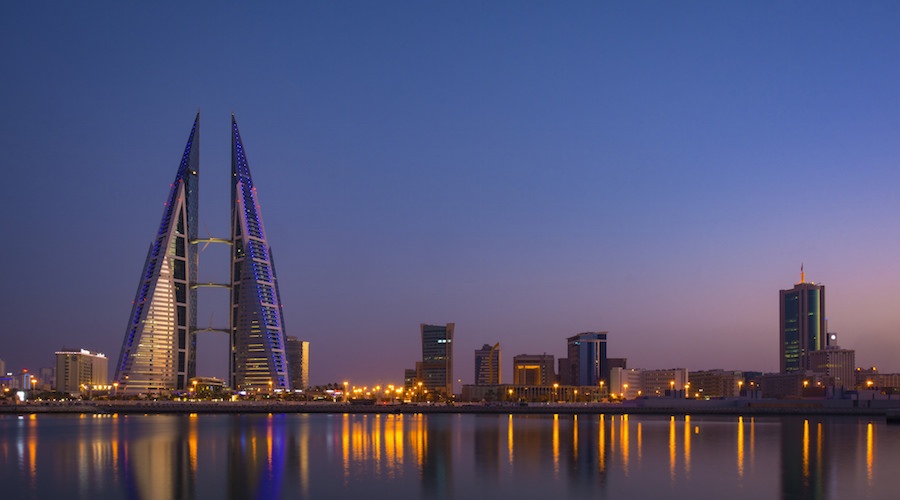From adversity to opportunity: Bahrain’s entrepreneurship as economic resilience

For some countries, political and economic disruptions have stalled development. But over the past few decades, Bahrain has boasted a proud history of economic resilience in the face of challenging conditions. Today, Bahrain continues to work towards productivity-driven growth that is steered by innovative entrepreneurship.
As global demand for pearls catapulted between in the 19th century, the pearling industry became Bahrain’s primary economic activity. At one point, the tiny country met 80 percent of the global market’s demand for pearls before the industry plummeted as cheaper, cultured Japanese pearls flooded the world market.
Although Bahrain was the first country to discover oil in 1932, the modesty of its supplies pushed the Kingdom to diversify away and focus on developing other sectors, including financial services.
In the midst of Beirut’s civil war, Bahrain’s banking sector took off, as several financial institutions transferred their regional operations to a more politically stable environment.
In today’s low oil price environment and economic slowdown, Bahrain is repositioning itself and shifting towards a digital economy, where the SME sector will play a critical role in building economic resilience.
Amazon Web Services recently announced the opening of its first office in Bahrain. This piggybacks off the launch of Amazon’s first MENA-based cloud accelerator, C5 Accelerate. This play is in line with the government’s strategy to enable a more tech-driven entrepreneurial ecosystem and see developments in cloud-based technology.
Many global indices affirm Bahrain’s position as a startup hub. Some of these include being ranked 29th in ICT development and 8th in ease of access to loans. Bahrain also comes in at 18th in economic freedom, the only country in the MENA region to make it to the top 20.
The supporting infrastructure is certainly there. But where does the local appetite for entrepreneurship stand?
Fostering a culture of entrepreneurship in Bahrain
Interestingly, a recent survey by Ernst & Young found that 70 percent of young Bahrainis were interested in the idea of starting their own business, twice as many as anywhere else in the Gulf.
Yet, countries around the world, including Bahrain, have thrown vast amounts of government incentives and infrastructure to build their own version of Silicon Valley, and have yet to achieve the same level of success.
SMEs account for a lion’s share of the number of companies in Bahrain, but fall short in productivity measures. SMEs employ 421,257 employees, only 52,918 of which are Bahrainis. The Ministry of Industry & Commerce estimates that SMEs contribution to Bahrain GDP is around 28% and has ambitions to grow those figures to 35% by 2018.
Hamed Fakhro, inventor and businessman, believes that Bahrain needs to go further than just financial support from the government.
“The fundamental mistake is that money is thrown around in programs targeting any startup as long as they can present a clear business plan. In my opinion, a business plan is good for one thing: Recycling the paper it’s printed on,” said Fakhro.
Fakhro believes that it will take three things to make SMEs the engine of Bahrain’s growth: offering targeted education and training, facilitating synergies between local companies, and enabling support from governments.
Tamkeen, a government-supported organization tasked with boosting Bahrain’s private sector, has certainly played a key role in addressing the latter. Since its inception a decade ago, Tamkeen has invested over 800 million Bahraini Dinars (US$2 billion) supporting over 100,000 Bahrainis and 38,000 businesses, according to Bahrain News Agency.
The challenge for government policy is to develop policies that work, but avoid the temptation to try to effect change via direct intervention.
To create self-sustaining startup ecosystems, Fakhro believes that “the government shouldn't - and can't - be drivers for the growth of SMEs. The market decides who grows but we can definitely help by creating a culture of belief.”
Startup Bahrain, an initiative founded by Ahmed AlSawafiri, is a step in the right direction to create the right environment for organically inspired entrepreneurship. It comes at a time when the Bahrain Economic Development Board is championing startups and the venture capital ecosystem as catalysts of the next phase of economic development in the Kingdom.
In a recent talk hosted at the Bahrain Polytechnic University, Professor Peter Klein, Professor of Entrepreneurship at Baylor University, explains that “entrepreneurship is a personality type: creativity, boldness, and imagination.”
The present century holds a treasure trove of bottlenecks, constraints, and issues that will likely persist. But these are the challenges that have - and will continue to - inspire Bahraini entrepreneurs to transform economies, invent industries, and create careers.


